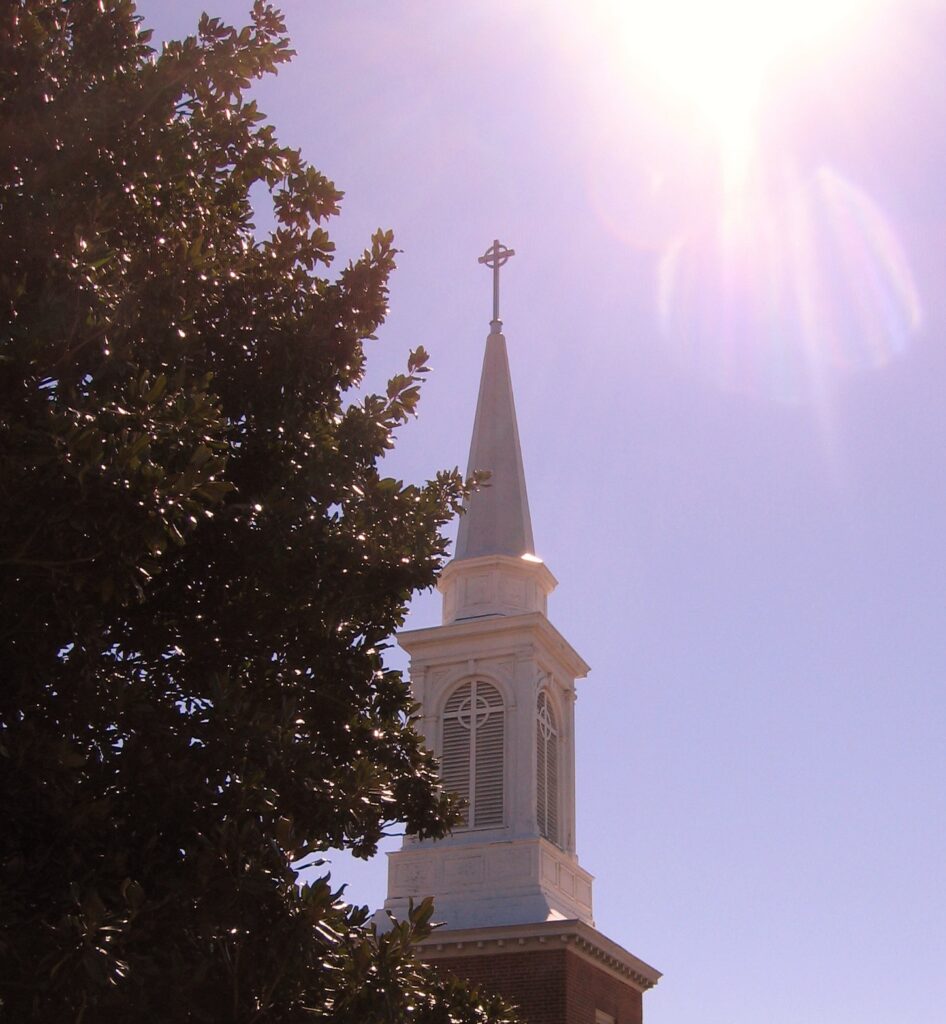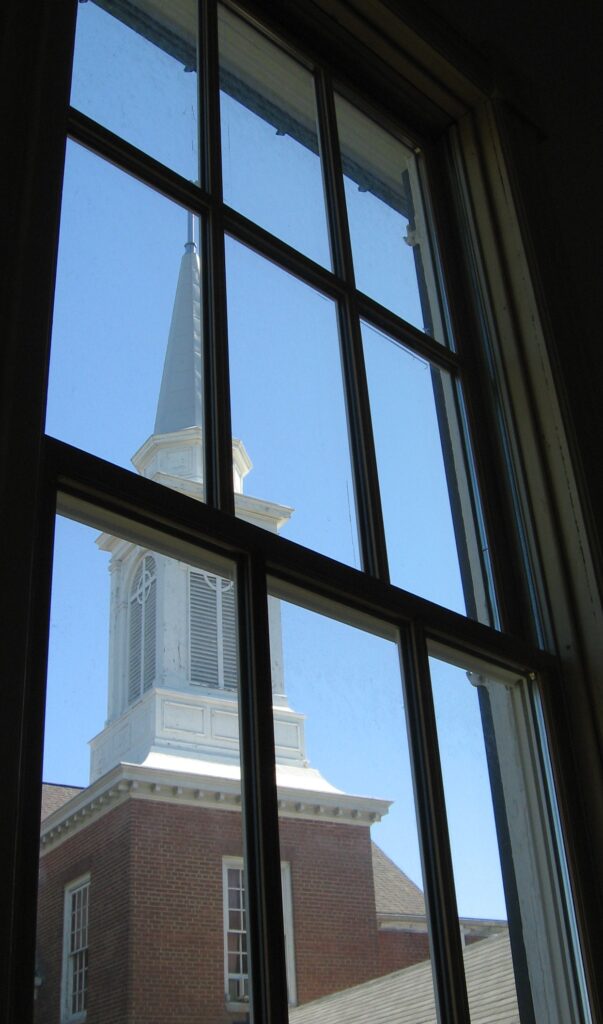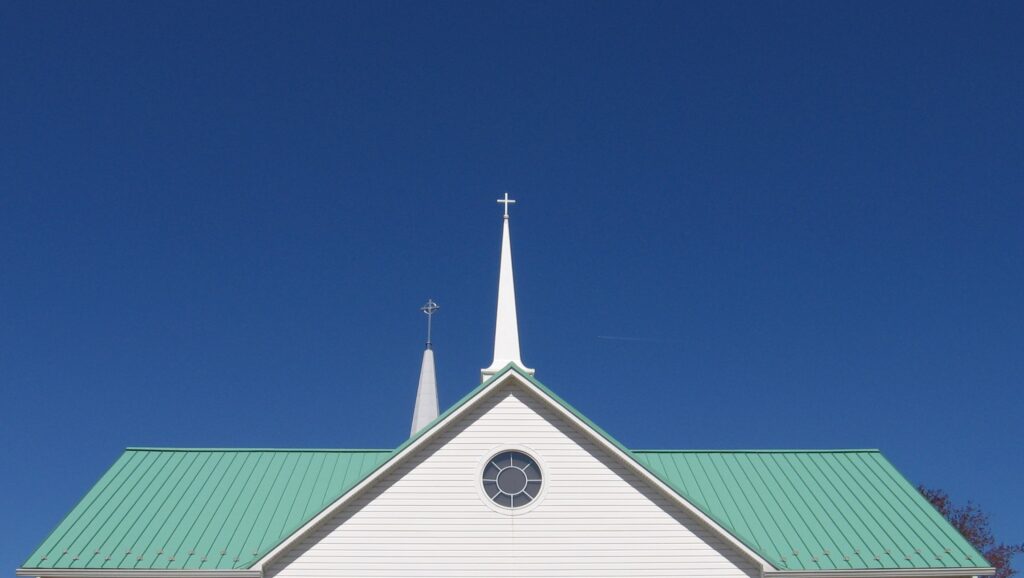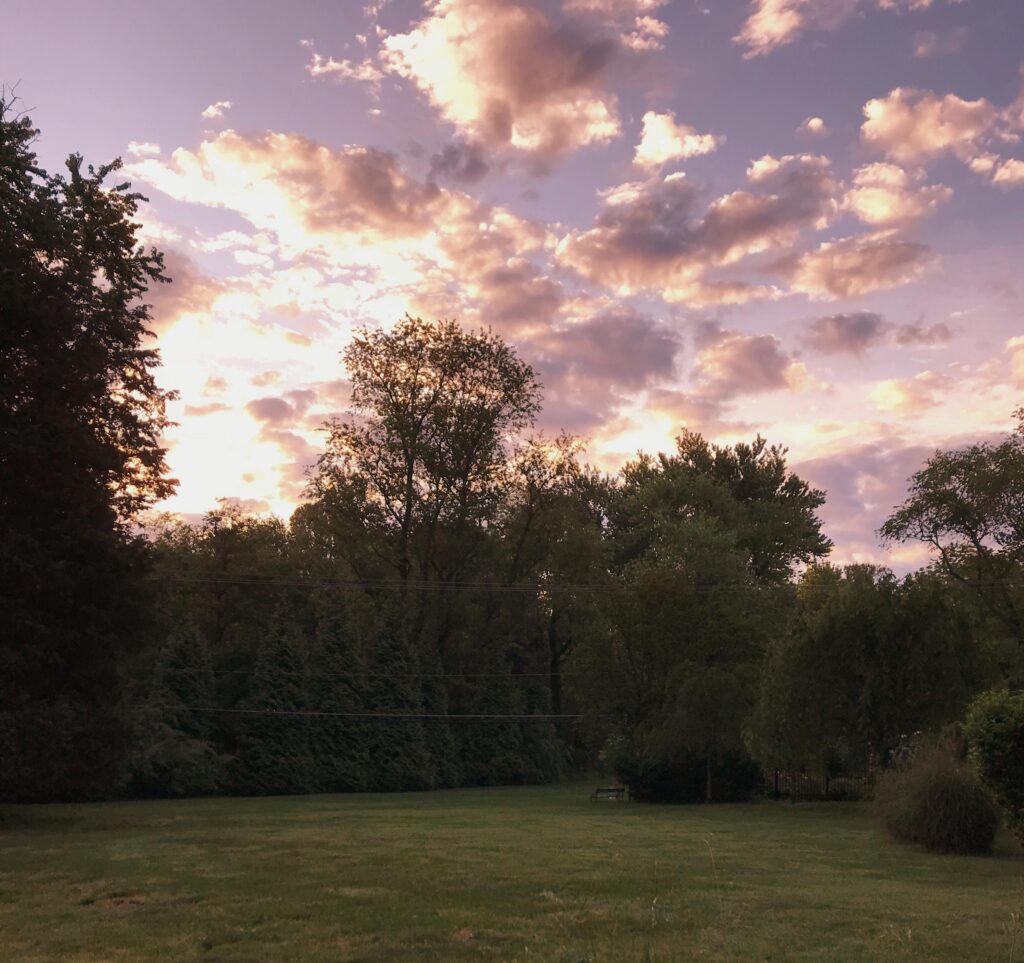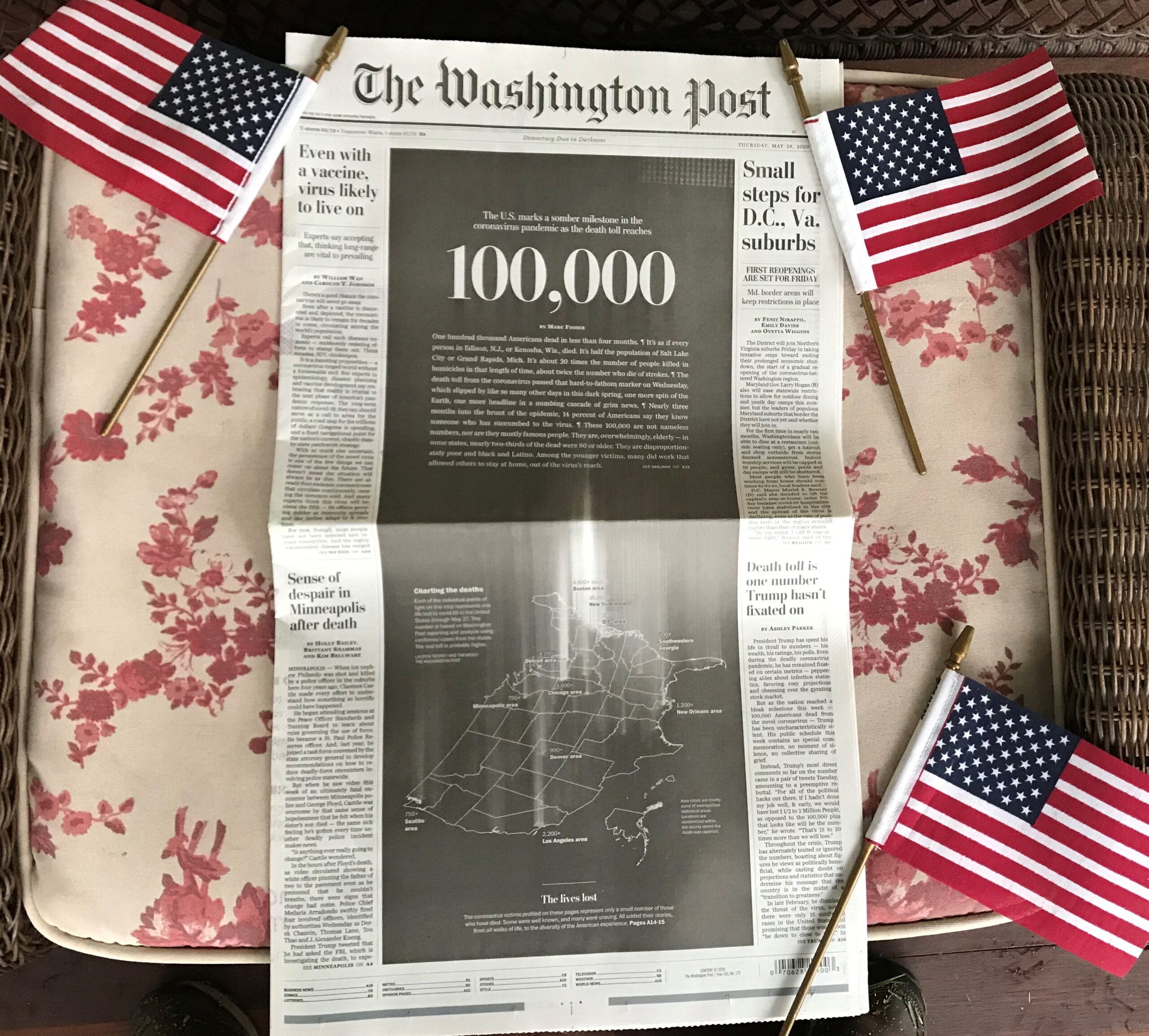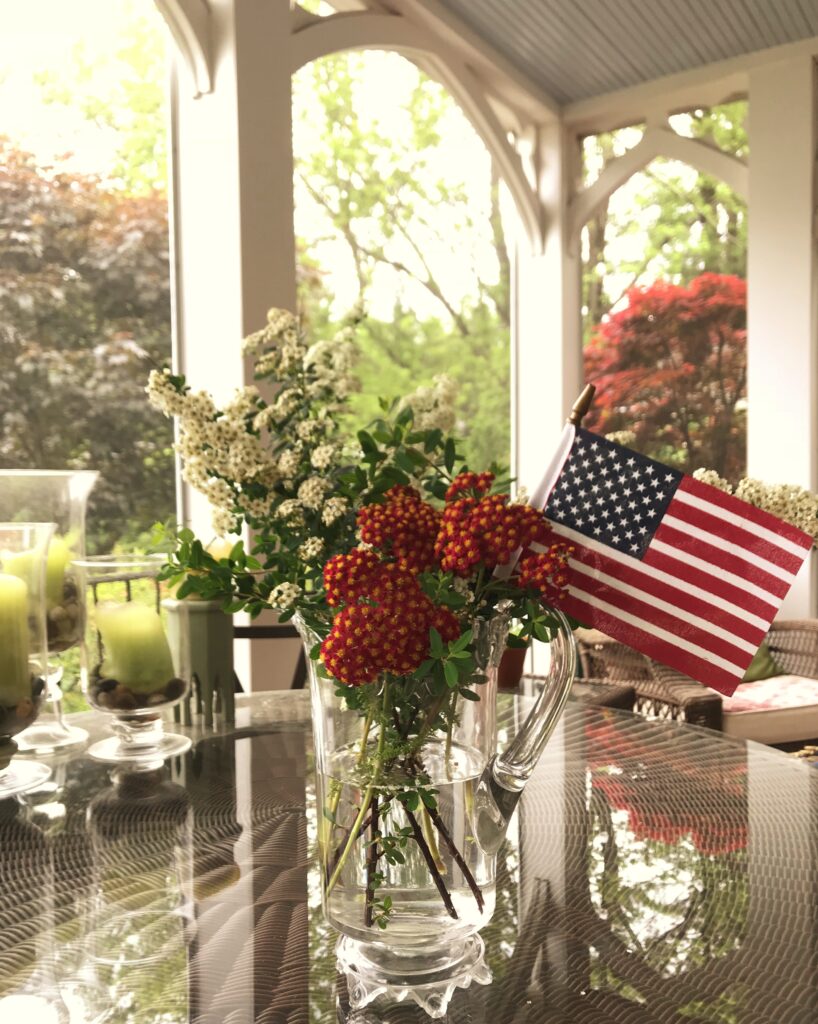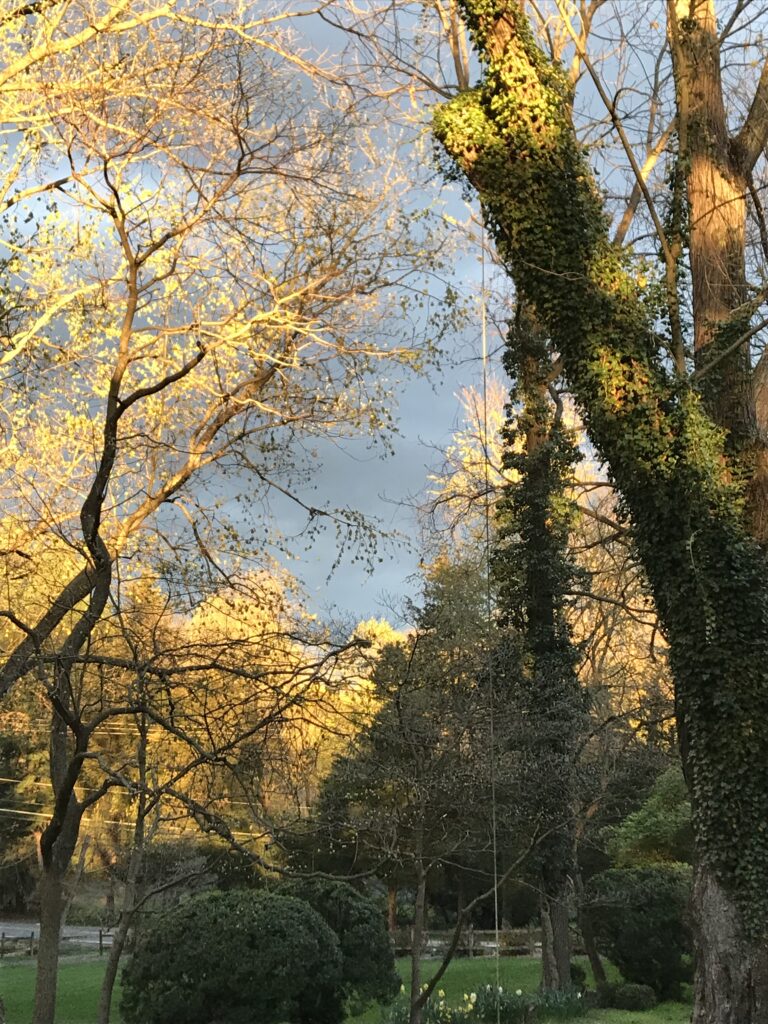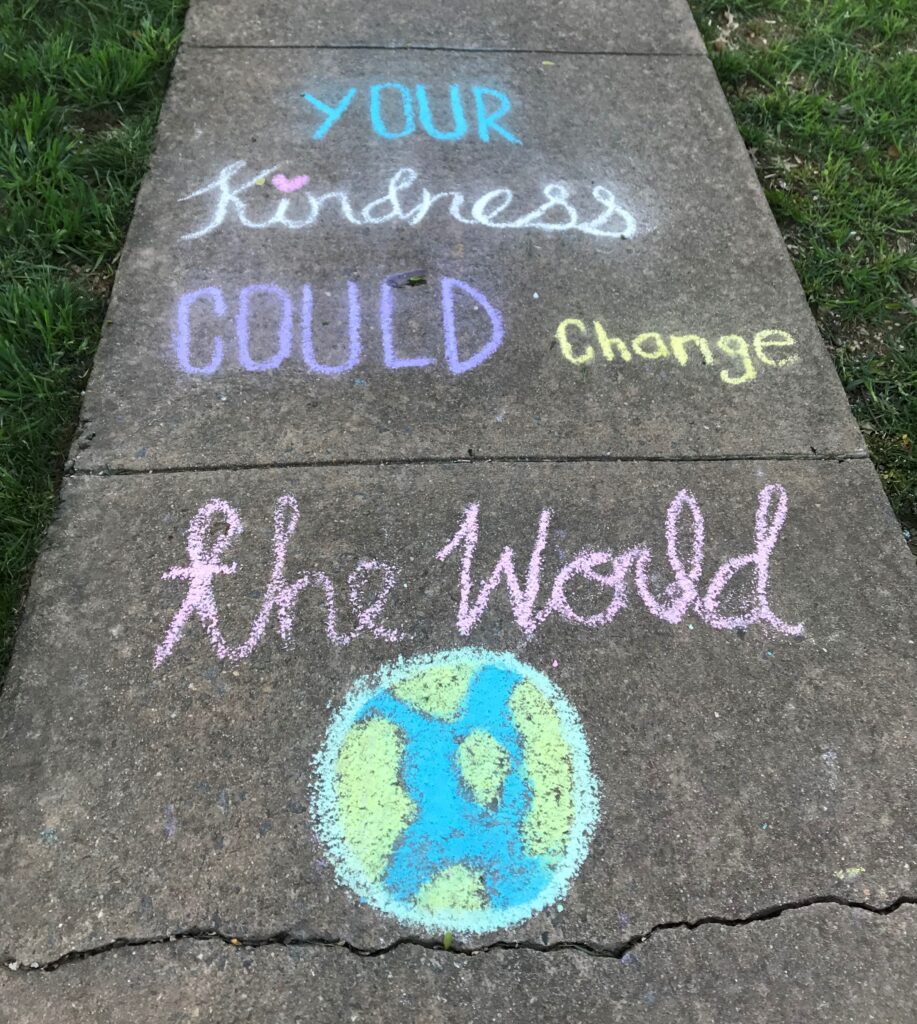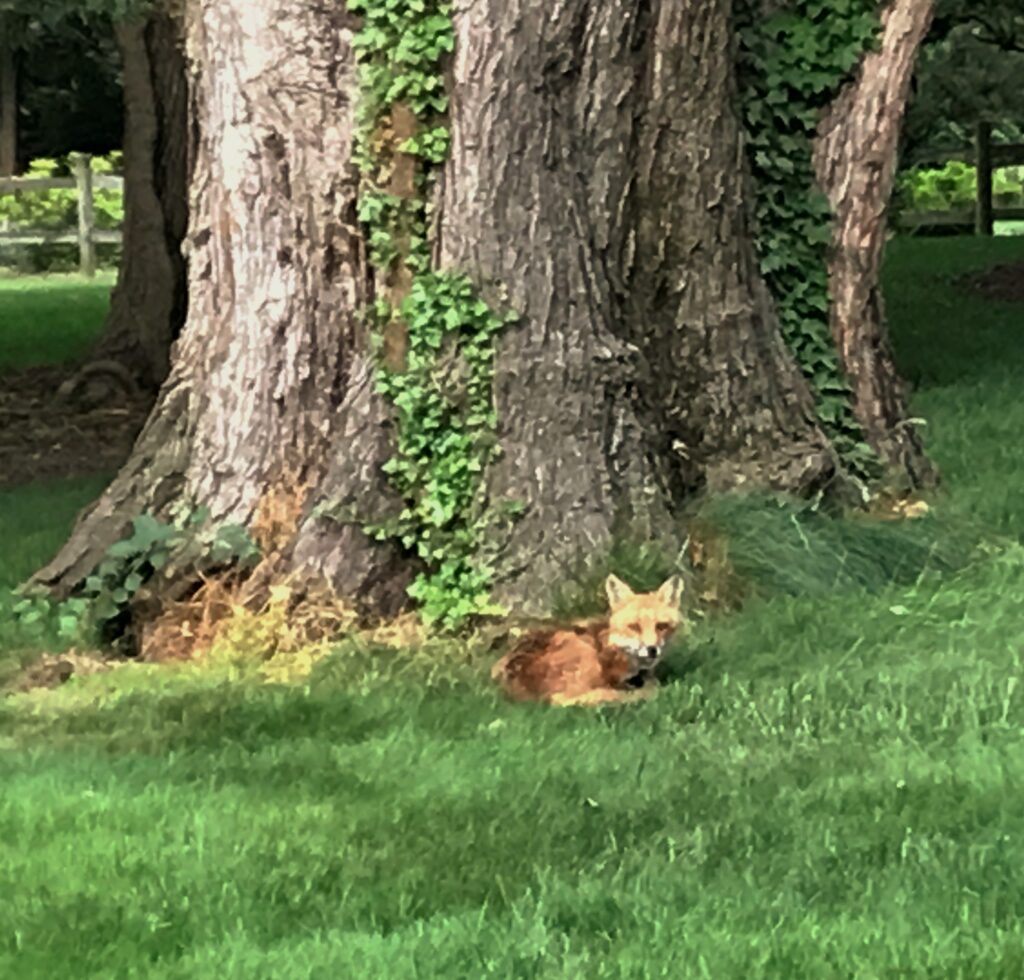
One recent evening, when my husband went to get our dog for his last walk of the day, he found Kiko in his bed by the window, gazing placidly at the fox that typically curls up under the maple tree around dusk.
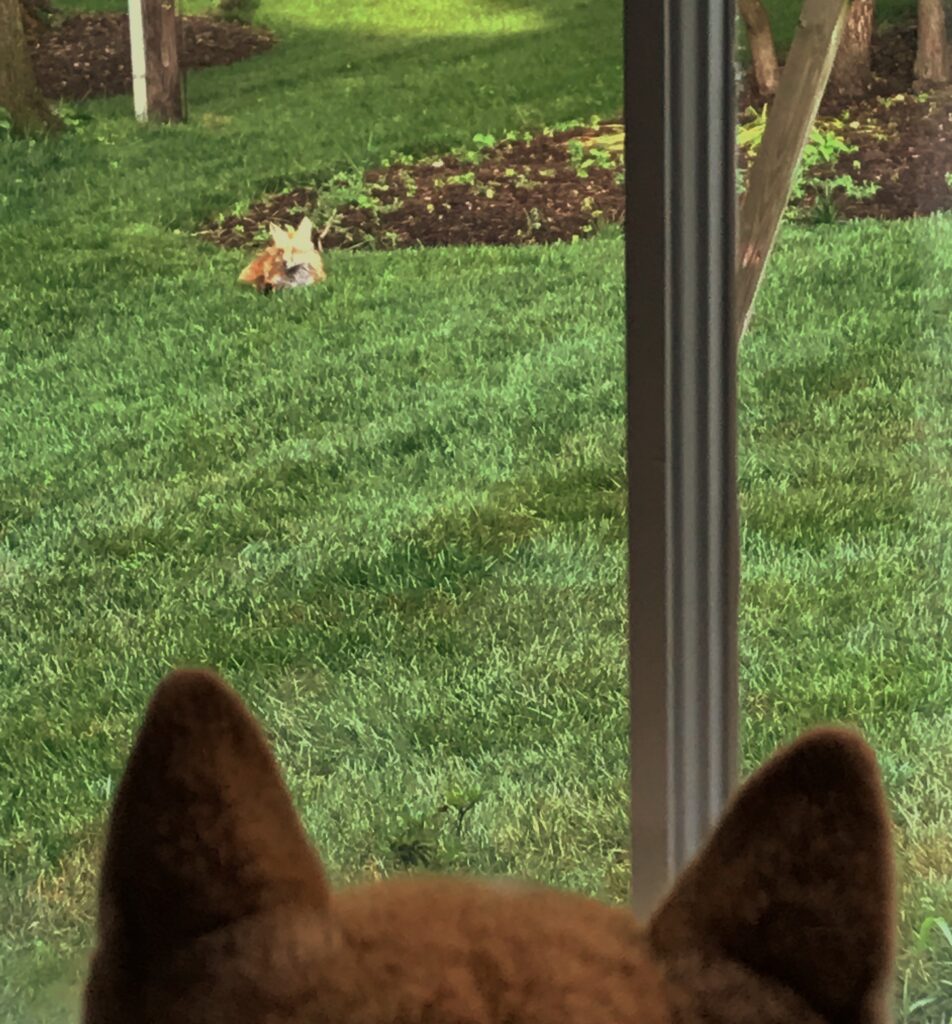
Kiko and the fox have become accustomed to one another. Lately it’s part of their routine to stare silently at one another as the sun sets. It’s almost as though an invisible thread links each red furry pointy-eared critter to the other, one inside, one outside.
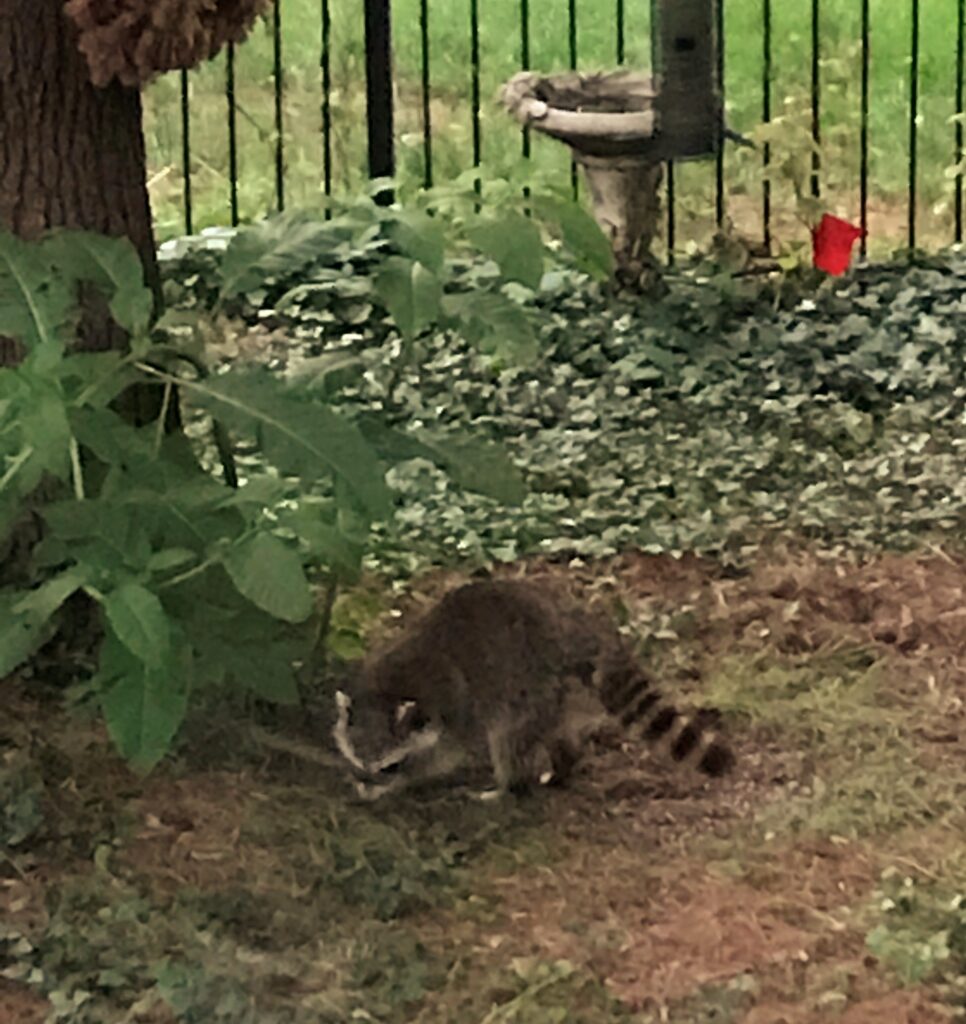
Glancing out another window, my husband spotted a less expected wild visitor. A plump and furry raccoon was intently pawing the ground beneath our bird feeder. Since we moved into our house twenty years ago, this is only our second raccoon spotting. My daughter and I dropped what we were doing and joined my husband to watch with interest as the raccoon staked out the territory around the bird feeder and explored available options. For a while, she* continued to use her little hands to sift the earth for sunflower seeds.
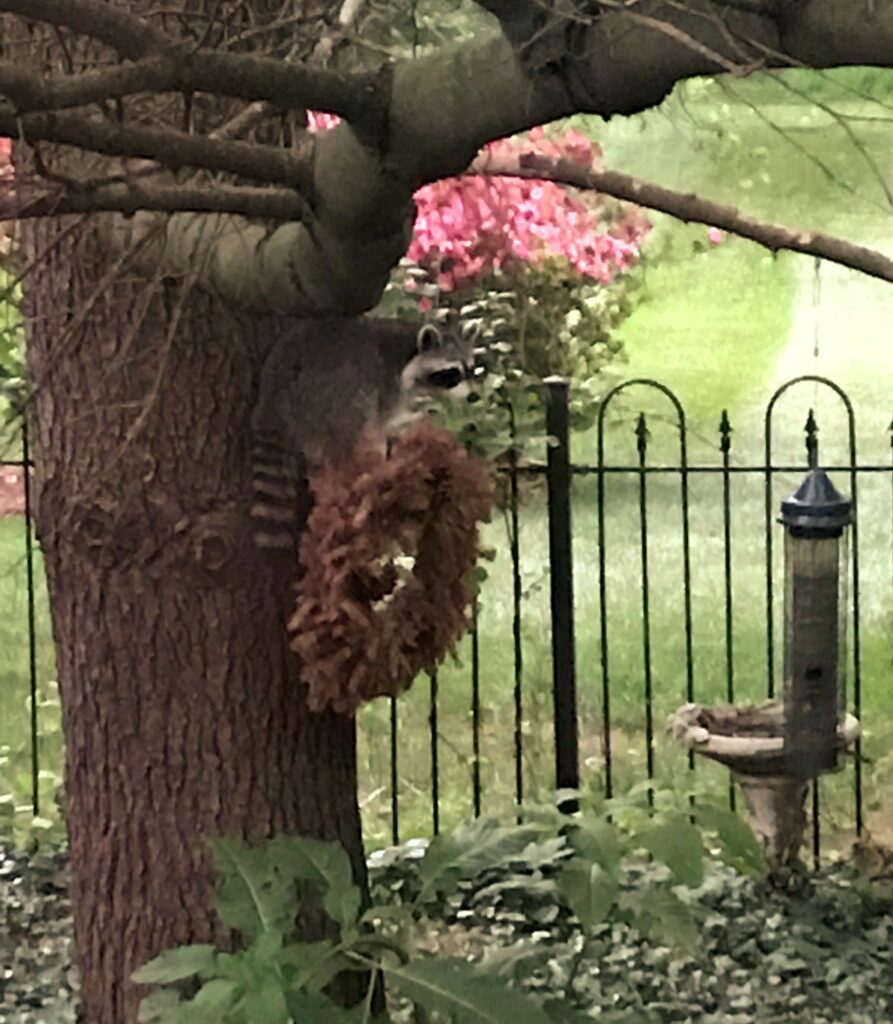
Clearly this method wasn’t yielding enough bounty. She ambled over to the pine tree, climbed up unhurriedly, and perched on the stump of a branch below the feeder. Last year’s dry, brown Christmas wreath, (which I hung on the stump in January when it was still green) almost caused her to lose her footing. After regaining her balance, she took her time to assess the situation. She appeared to consider a leap onto the feeder, but evidently decided against it. Another approach was in order.
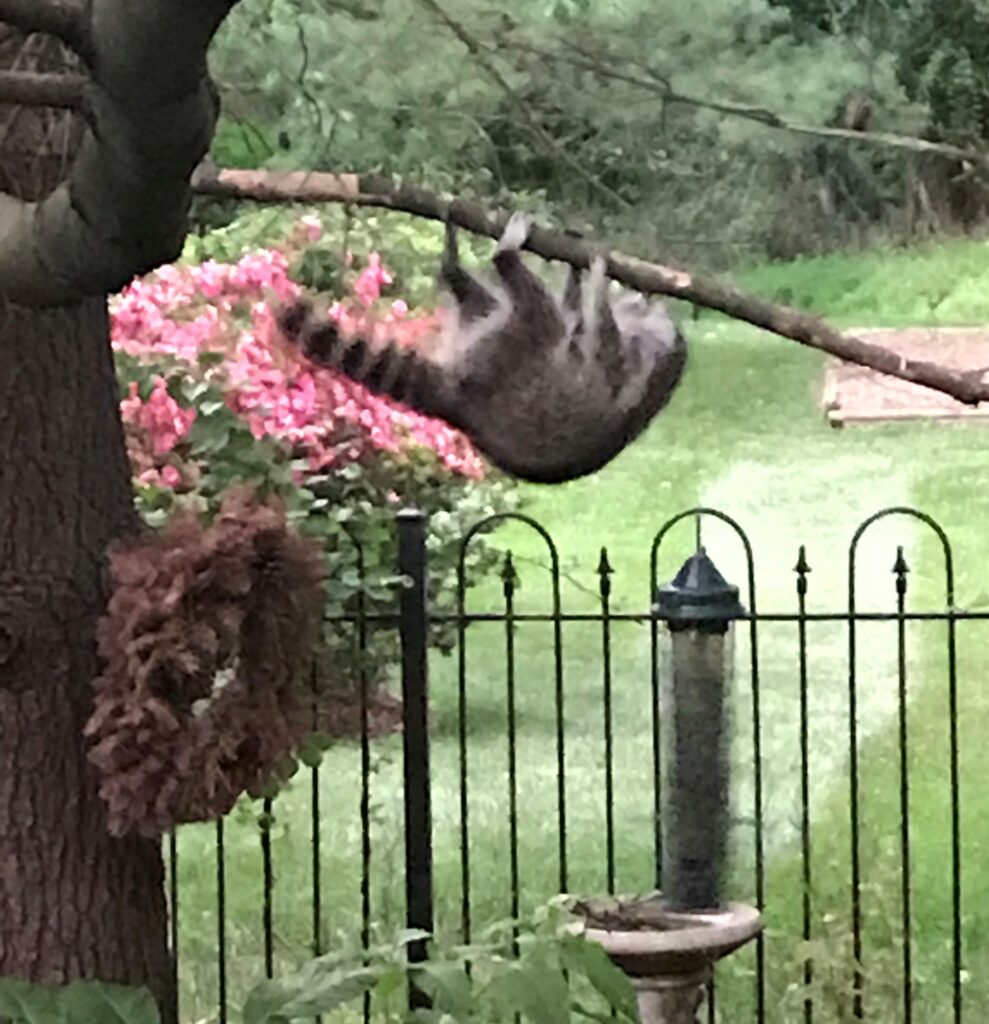
Up until this point, the raccoon had appeared to be a slightly clumsy, slow-moving creature, an unlikely athlete. As she grasped the branch from which the feeder hangs, this all changed. Suddenly, she was the picture of fluffy agility, using all four feet to make her way easily, upside down, along the branch.
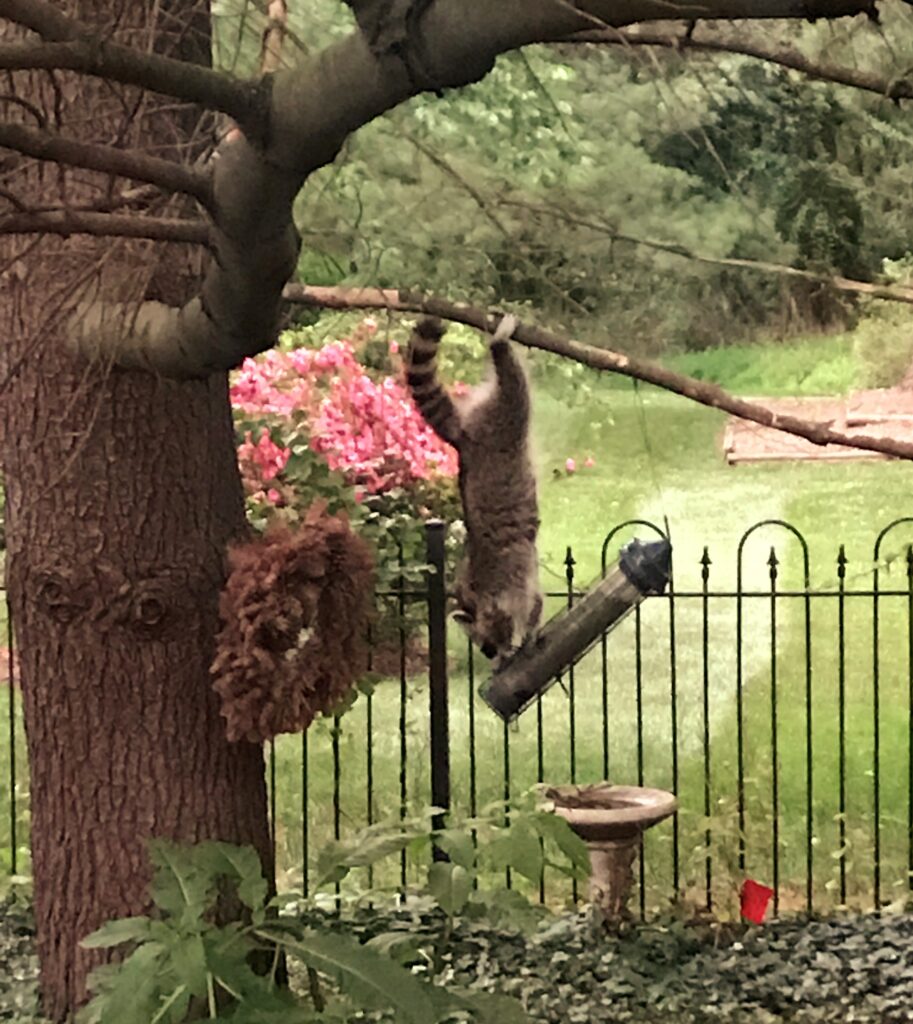
Once within reach of the feeder, she curled her white hind paws around the branch and suspended herself vertically, in the manner of a trapeze artist at the circus. She grasped the feeder with one front paw and used the other to fish out seed from an opening. She hung on like this for quite some time. The squirrels that routinely attempt to outsmart our supposedly squirrel-proof bird feeder are far less successful.
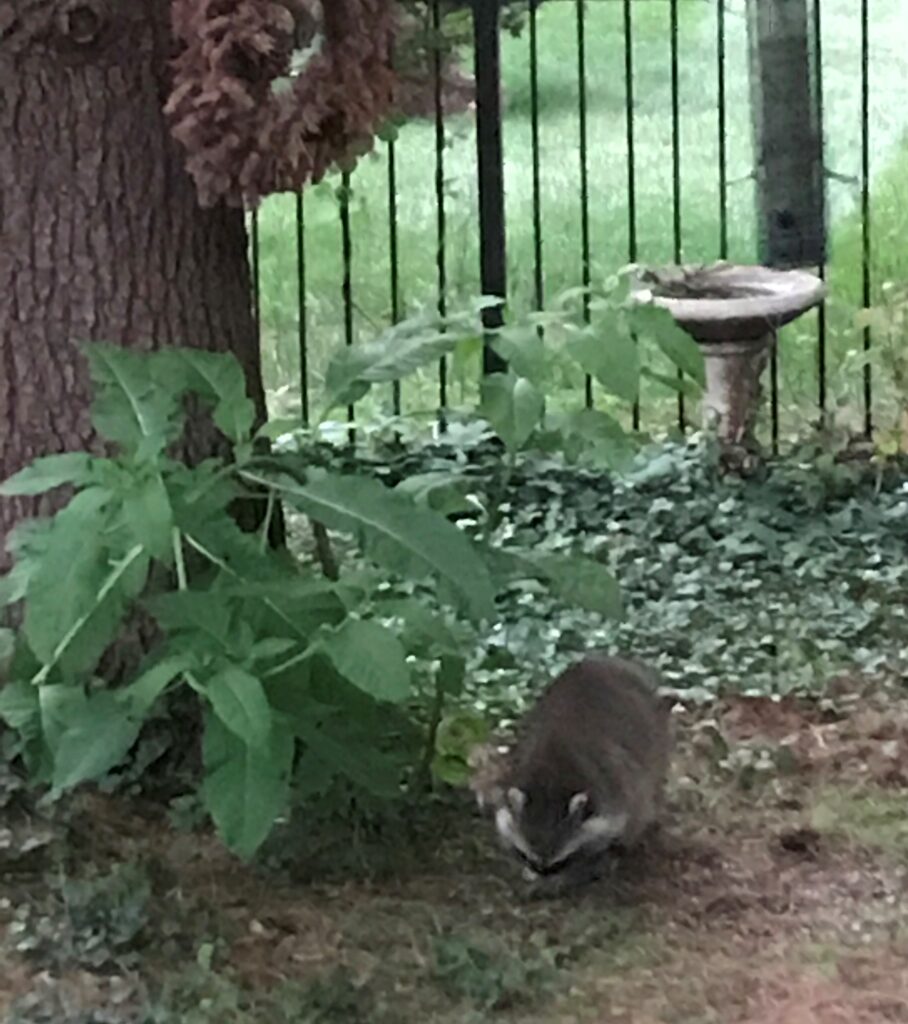
The raccoon then flipped gracefully and dropped lightly to the ground, where she continued feeding on the seed she’d spilled from the feeder.
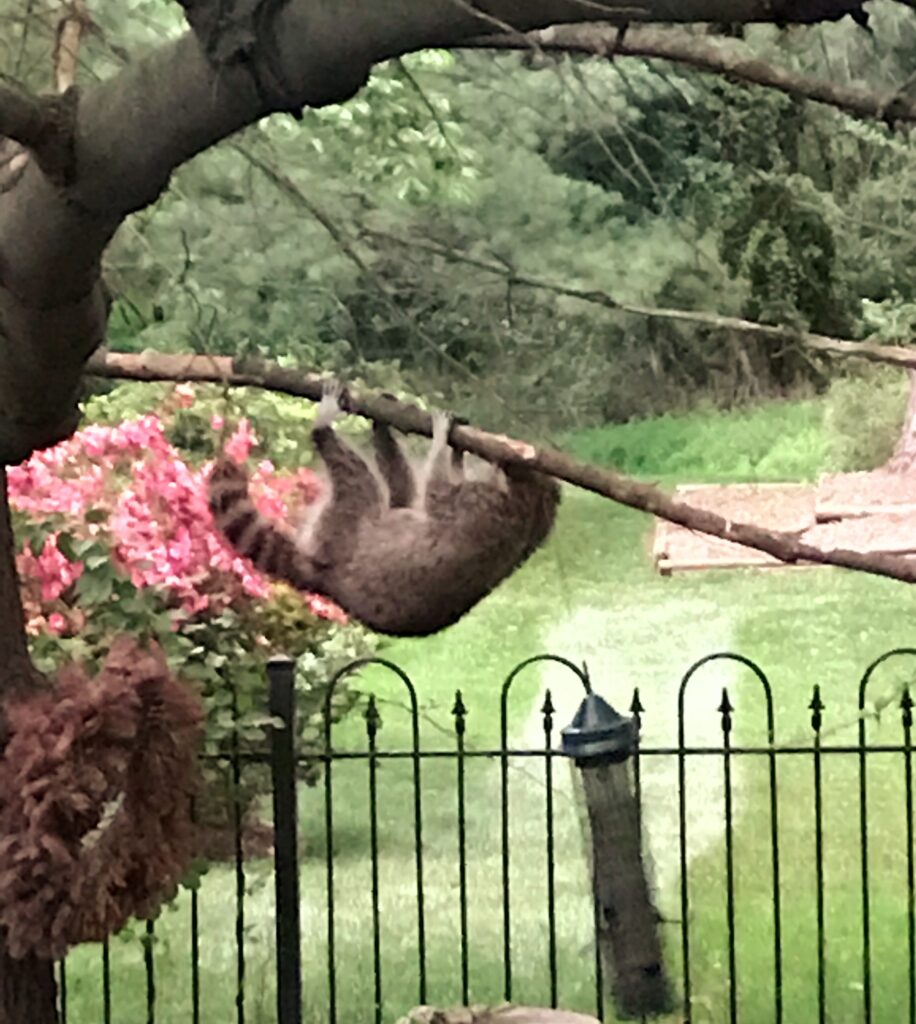
And soon she began the process again.
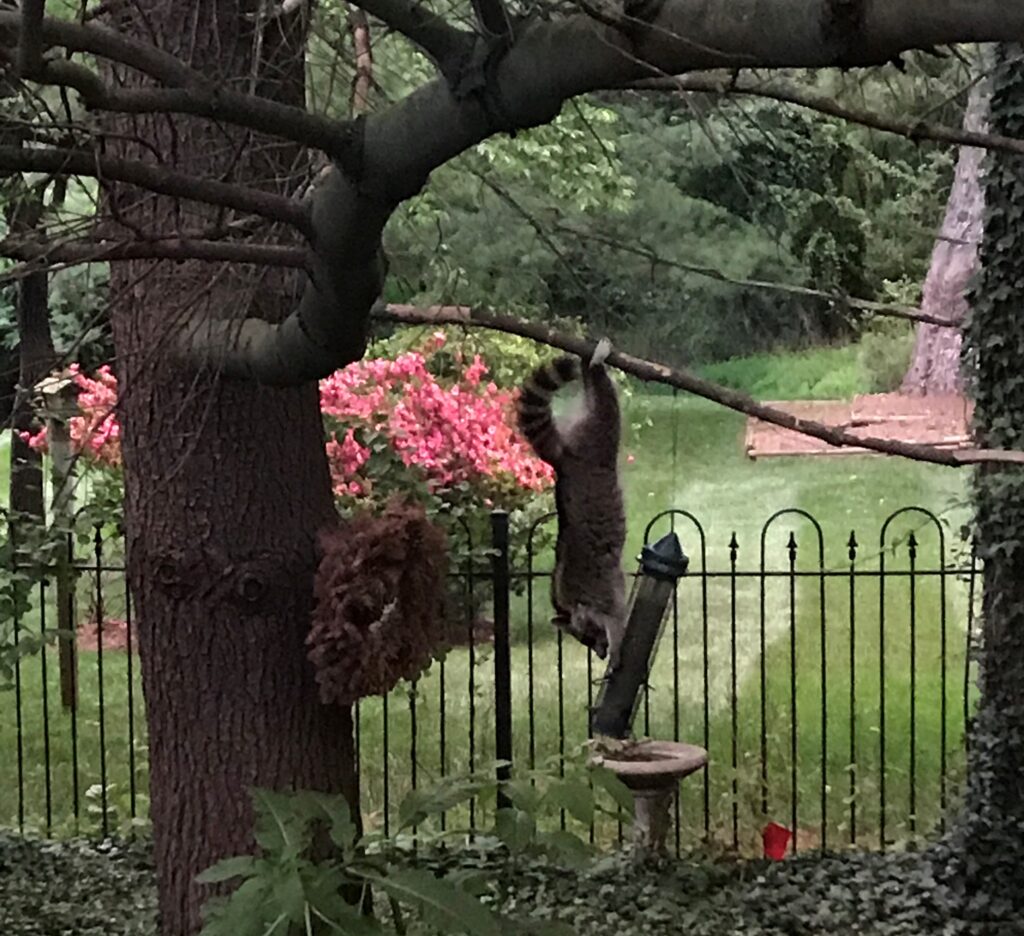
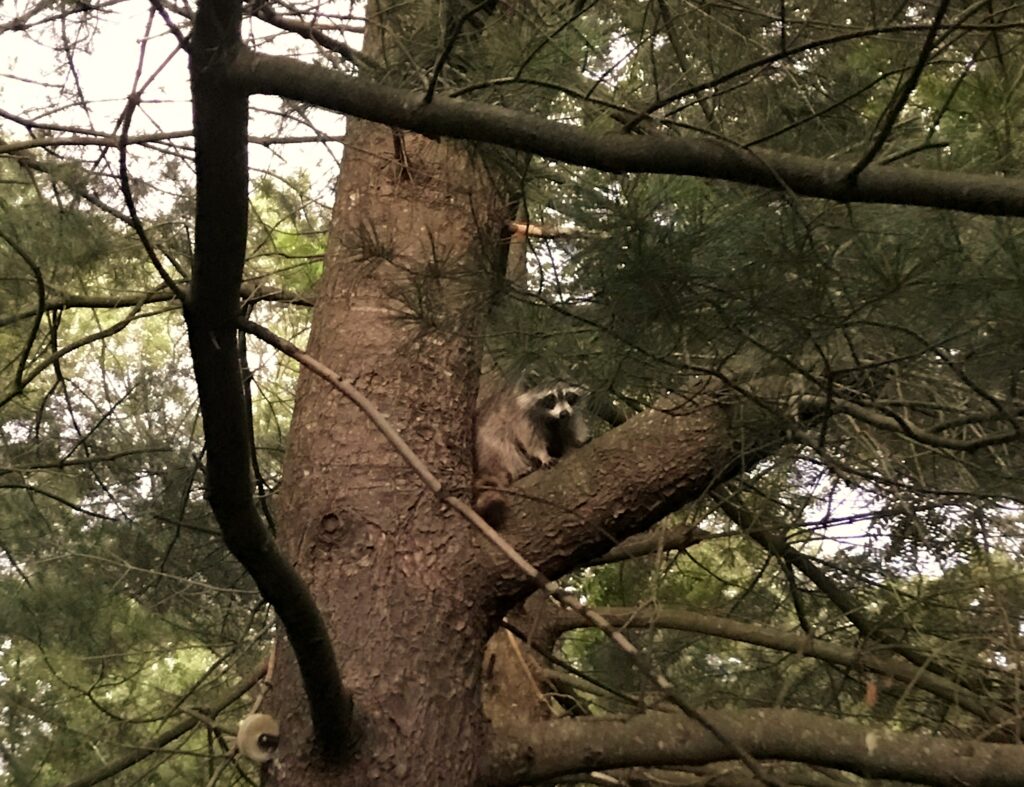
In our focus on the raccoon, we failed to notice that Kiko’s attention had been roused. He’d emerged from his bed and left the room. At first we thought he might have retreated upstairs for the night, as he often does just before it’s time for the last walk. But no. He’d pushed open the kitchen door to the screened porch, plunged through his doggie door and dashed out into the side yard. By the time we arrived, he was at the base of the pine tree, looking up at the raccoon high above him in the branches. See, I can still hunt, he seemed to be saying, as he looked at us, even more condescendingly than usual. And he, like the raccoon, can be surprisingly quick on his feet, should the need arise.
Seven years ago, Kiko had a brief encounter with a raccoon that also ended with the fuzzy masked visitor peering down at him from a tree. (See this post here from November 2013.) I wondered then if that would be the start of more frequent raccoon sightings. It was not. Will it be the case now? We’ve seen the memes promoting the raccoon as the perfect Covid-19 mascot: it’s a mask-wearing hand-washer, and the letters of racoon can be rearranged to spell corona. Our visitor returned the next evening, around the same time, and went through the same feeding process. We haven’t seen her since, but I’ll continue to look for her around dusk.
We could use the distraction. During the past four months, our family has rarely left the house. We’ve had no guests. No friends inside the house. (And therefore we’ve abandoned all but the most minimal efforts toward tidying up. The surrounding clutter encroaches daily. Chaos looms.) It sure would be pleasant to be able to count on visits from such a charming acquaintance. One who abides by the pandemic rules of social distancing, entertains us briefly with acrobatic feats, never expects to come in, and then quietly disappears. Unfortunately, it will be a while before we can expect to enjoy the company of any other kind of visitor.
*I’ve recently realized that I tend to refer to most animals I see in nature with male pronouns. I know our most frequent fox visitor is a male because he lifts his leg to pee. I have no evidence of gender for this raccoon, but I’ve decided to go against my instinct and refer to it as “she.”

